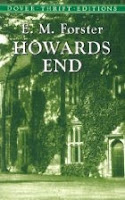 Duffy was a new author for me, but the book looked intriguing and I’m always happy to find new authors I like. I listened to this one rather than read it and I think that made a big difference. I really think I would have liked it better had I either read it myself or had there been a different narrator. It’s not that the narrator (Patricia Gallimore) wasn’t a good reader, just that I would have read it differently. Emphasizing certain aspects of the main character, Ingrid Langley, would have made the whole story much more fun.
Duffy was a new author for me, but the book looked intriguing and I’m always happy to find new authors I like. I listened to this one rather than read it and I think that made a big difference. I really think I would have liked it better had I either read it myself or had there been a different narrator. It’s not that the narrator (Patricia Gallimore) wasn’t a good reader, just that I would have read it differently. Emphasizing certain aspects of the main character, Ingrid Langley, would have made the whole story much more fun.As to the book itself, it wasn’t brilliant, but it was a good, light, fun read. I got the impression the author was going for more of a light hearted approach with characters who were too wise to take themselves seriously, and she achieved that. I also though her angle of using a retired MI-5 agent and his wife was an interesting one that left her more avenues open than standard police detectives have. She was able to play with the characters more that way. So, no, she’s not Ian Rankin, but she doesn’t have to be. If all crime were Ian Rankin like, life would get boring. She provides a good, fun alternative for crime enthusiasts who want something less serious for a change. That’s why I’m giving this one a 4/5.






